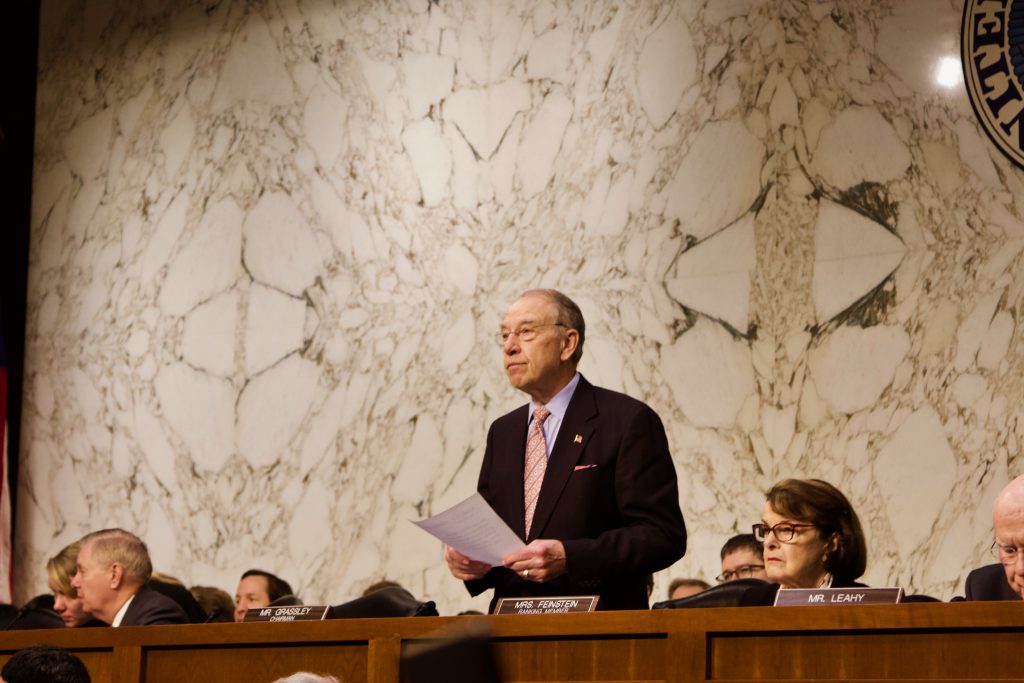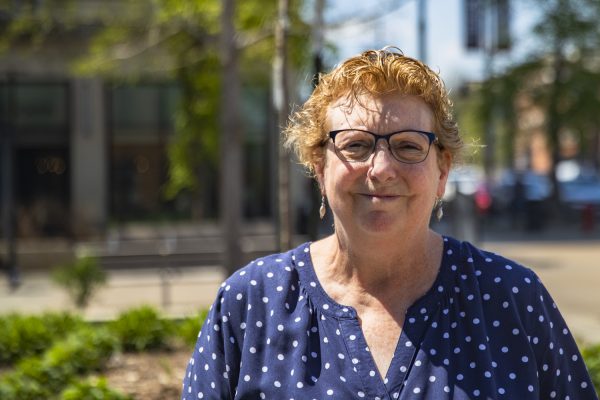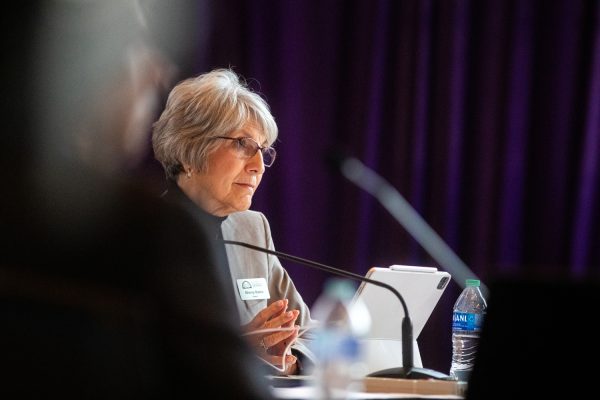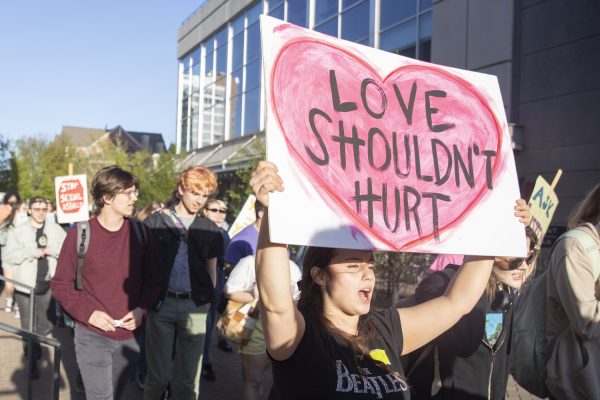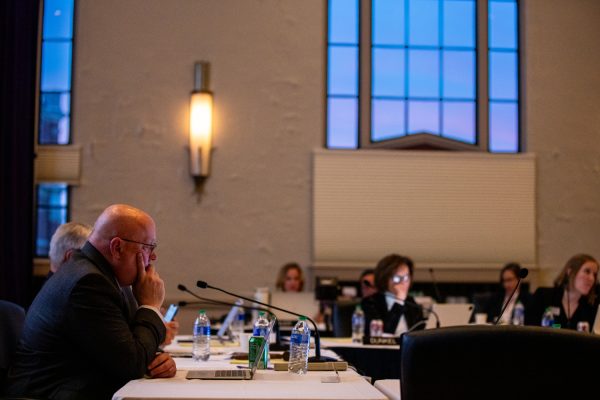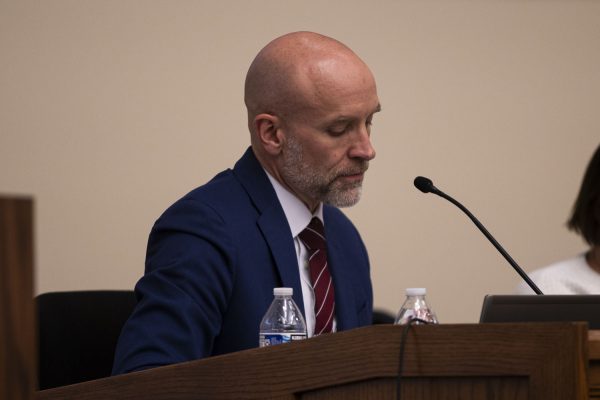Judiciary hearing points to failures leading to Parkland shooting
Senate Judiciary Committee Chairman Chuck Grassley, R-Iowa, stands at a hearing March 14 addressing oversight in the Parkland, Florida, school shootings, in which 17 people died.
March 14, 2018
WASHINGTON — As students across the nation rallied against gun violence with school walkouts, Sen. Chuck Grassley, R-Iowa, presided over the “See Something, Say Something” Senate Judiciary Committee hearing on March 14.
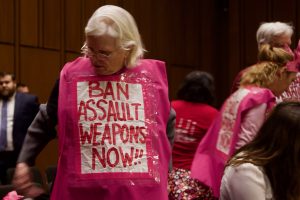
The hearing focused on the oversight of the Feb. 14 shooting at Marjory Stoneman Douglas High School in Parkland, Florida, which claimed 17 lives.
Grassley introduced the Marjory Stoneman Douglas Memorial Act, which, he said, is designed to strengthen cutting-edge research into the prevention of school violence.
“We must rally around evidence-based solutions,” he said.
Sen. Dianne Feinstein, D-Calif., said school shootings are too common, noting that since the December 2012 shooting at Sandy Hook Elementary School, there has been an average of five incidents per month, and 7,000 children have been killed.
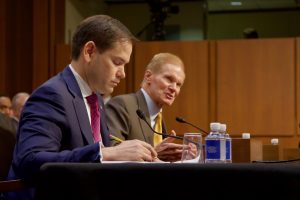
Florida’s senators testified at the hearing.
Sen. Bill Nelson, D-Fla., said there are too many ways to get around background checks, specifically through gun shows and personal sales.
The Parkland shootings are an issue of law enforcement and the background-check system, Sen. Marco Rubio, R-Fla., said.
“The school system knew he was dangerous, local law enforcement knew he was dangerous, the FBI was aware that he was dangerous,” Rubio said. “He didn’t slip through one crack, he slipped through every crack.”
David Bowdich, the acting deputy director of the FBI, said the bureau made mistakes, which may have led to the Parkland shootings.
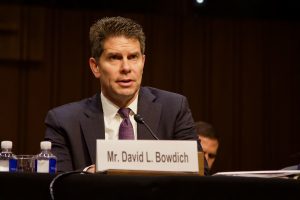
“While we will never know if we could’ve prevented this tragedy, we should’ve done more,” Bowdich said. “There are limitations for us. We made mistakes here, no question about that.
”Even if we had done everything right, I’m not sure that we could’ve stopped this act. But we could’ve tried.”
Ryan Petty, the father of Parkland shooting victim Alaina Petty, 14, gave a heartfelt testimony to the Judiciary Committee in which he said that though not everyone will agree on guns, everyone can agree that students and teachers should be safe.
“They should be safe at school,” he said. “We rally to the battle cry, ‘This time must be different.’ ”
Katherine Posada, an English teacher at Stoneman Douglas, said that when her class was alerted by the code red, she gathered her students in a corner of the classroom.
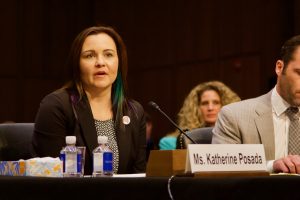
“I started to go into panic mode but struggled to keep it together, knowing that if I lost it, my students would lose it, too,” Posada said.
Posada’s classroom is on the opposite side of the school from where the shootings occurred. Students from her other classes who were closer to the shooter have described to her what it was like stepping over classmates’ dead bodies to escape their classrooms.
“These kids will be dealing with this trauma for years to come,” Posada said. “People have suggested this is a mental-health issue, some have said it’s a school-security issue. I agree with both of these, but to say it isn’t also a gun issue is absurd.”
Petty said that to make progress nationwide, other states and the federal government should look at the first steps Florida has taken with legislation.



